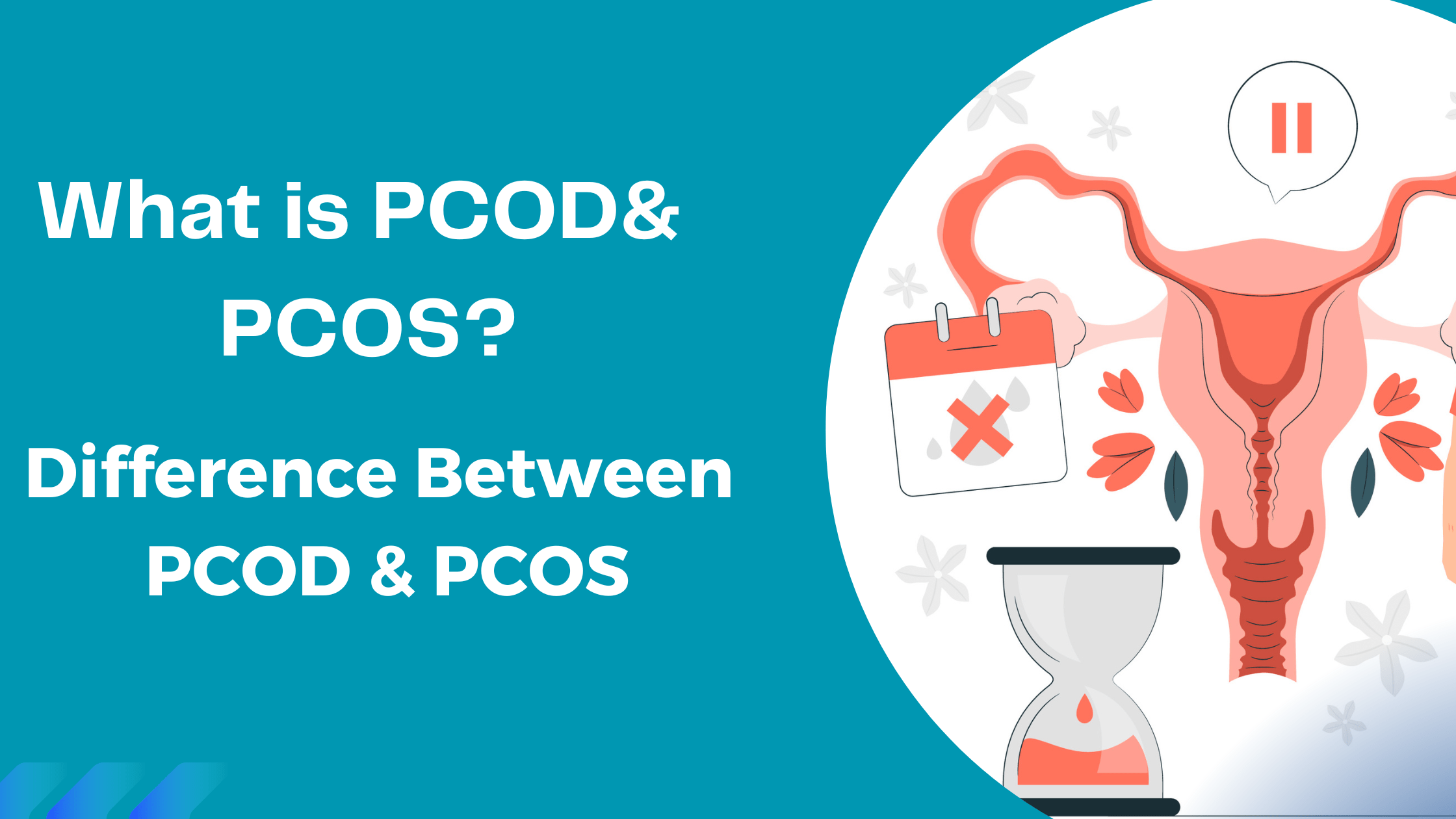What is PCOD?
PCOD stands for Polycystic Ovary Syndrome, which is a hormonal disorder that affects women of reproductive age. It is characterized by the presence of multiple cysts (small, fluid-filled sacs) on the ovaries, along with various symptoms related to hormonal imbalances.
Causes of PCOD?
The exact cause of PCOD is not fully understood, but it is believed to involve a combination of genetic and environmental factors. One of the primary underlying issues in PCOD is the overproduction of androgens (male hormones) by the ovaries. This disrupts the normal menstrual cycle and leads to the formation of cysts on the ovaries.
What are the Common symptoms of PCOD?
Common symptoms of PCOD include irregular or absent menstrual periods, excessive hair growth (hirsutism), acne, weight gain, and fertility problems. Women with PCOD may also experience insulin resistance, which can lead to an increased risk of developing type 2 diabetes.
How to Diagnosed PCOD?
PCOD can be diagnosed through a combination of medical history evaluation, physical examination, and various tests, including hormone level assessments, ultrasound imaging of the ovaries, and ruling out other potential causes of the symptoms.
Treatment for PCOD:
Treatment for PCOD focuses on managing the symptoms and may involve a combination of lifestyle changes, such as regular exercise and a healthy diet, along with medications to regulate menstrual cycles, control androgen levels, and improve insulin sensitivity. In some cases, fertility medications may be prescribed to assist with ovulation and improve the chances of pregnancy.
It’s important for women with PCOD to work closely with their healthcare providers to manage the condition effectively, as it can have long-term implications for their reproductive health and overall well-being.
What is PCOS?
PCOS stands for Polycystic Ovary Syndrome, which is a common hormonal disorder that affects women of reproductive age. It shares similarities with PCOD (Polycystic Ovary Disease), and the terms are often used interchangeably.
PCOS is characterized by a combination of symptoms related to hormonal imbalances, ovarian dysfunction, and metabolic issues. The exact cause of PCOS is not fully understood, but it is believed to involve a combination of genetic and environmental factors.
The primary features of PCOS include:
Irregular Menstrual Cycle: Women with PCOS often have irregular or infrequent menstrual periods. This is due to hormonal imbalances that disrupt the normal ovulation process.
Hyperandrogenism: PCOS is associated with elevated levels of androgens, which are male hormones present in both men and women. This can lead to symptoms such as excessive hair growth (hirsutism), acne, and male-pattern baldness.
Polycystic Ovaries: PCOS is characterized by the presence of multiple small cysts on the ovaries. However, not all women with PCOS have ovarian cysts, and the cysts themselves are not the cause of the syndrome.
In addition to these primary features, PCOS is often associated with other metabolic disturbances, such as insulin resistance, which can lead to an increased risk of developing type 2 diabetes, obesity, and dyslipidemia (abnormal blood lipid levels).
How to Diagnosis of PCOS?
The diagnosis of PCOS is based on the presence of specific symptoms, including irregular menstrual cycles, clinical or biochemical signs of hyperandrogenism, and the exclusion of other potential causes. Diagnostic criteria may vary, but commonly used guidelines include those established by the Rotterdam Consensus Criteria.
Management of PCOS focuses on addressing individual symptoms and reducing the risk of long-term health complications. Treatment options include lifestyle modifications (such as regular exercise and a healthy diet), hormonal contraceptives to regulate menstrual cycles and control androgen levels, insulin-sensitizing medications, and fertility treatments for women trying to conceive.
Women with PCOS should work closely with their healthcare providers to develop a personalized management plan that addresses their specific symptoms and concerns. Regular monitoring and screening for potential complications, such as diabetes and cardiovascular disease, are also important for women with PCOS.
Difference Between PCOD and PCOS:
PCOD (Polycystic Ovary Disease) and PCOS (Polycystic Ovary Syndrome) are terms often used interchangeably and can refer to the same condition. However, there can be some subtle differences in how the terms are used and understood:
Terminology: PCOD is an older term that was commonly used to describe the condition, while PCOS is a newer term that is more widely used today. PCOS is often considered a more comprehensive term that encompasses not only the presence of ovarian cysts but also the various hormonal and metabolic abnormalities associated with the syndrome.
Focus on Symptoms: PCOD may be used to emphasize the presence of ovarian cysts, which are a characteristic feature of the condition. On the other hand, PCOS highlights the broader range of symptoms and hormonal imbalances that occur, including irregular menstrual cycles, hyperandrogenism (excess male hormones), and metabolic disturbances.
Diagnostic Criteria: The diagnostic criteria for PCOD and PCOS may differ slightly. PCOD is typically diagnosed based on the presence of ovarian cysts detected through ultrasound imaging, whereas PCOS diagnosis considers a broader range of criteria, including menstrual irregularities, hyperandrogenism, and exclusion of other potential causes.
Clinical Presentation: PCOS is often associated with a wider range of symptoms and complications beyond the ovaries, including insulin resistance, obesity, dyslipidemia, and an increased risk of developing type 2 diabetes and cardiovascular disease. PCOD, on the other hand, may focus more on the reproductive aspects and ovarian cysts.


